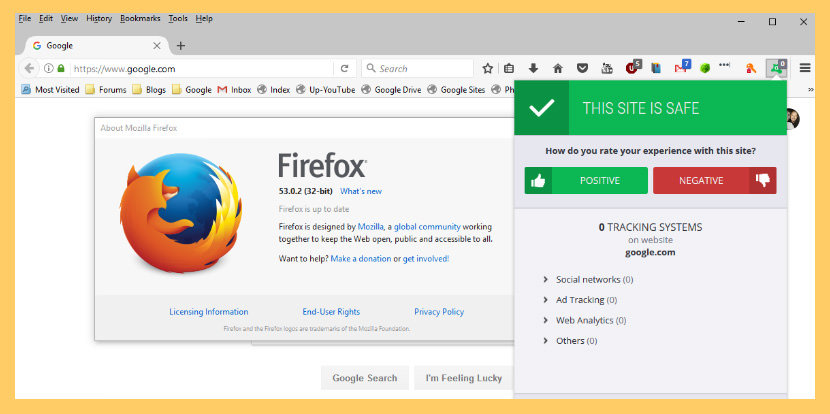

- #Avast firefox website not secure pdf
- #Avast firefox website not secure update
- #Avast firefox website not secure software
- #Avast firefox website not secure password
- #Avast firefox website not secure Pc
This certificate is signed by Avast's trusted root authority and added to the root certificate store in Windows and in major browsers.
#Avast firefox website not secure pdf
SEE: Cybersecurity in an IoT and mobile world (ZDNet special report) | Download the report as a PDF (TechRepublic)Īvast and other antivirus firms do this by removing a site's Transport Layer Security (TLS) certificate and adding their own self-generated certificate. HTTPS filtering by antivirus vendors is a slightly controversial feature that's designed to inspect web content for malware in encrypted HTTPS traffic, but in the process it undermines the security and privacy afforded by HTTPS. HTTPS filtering remains enabled on other browsers.
#Avast firefox website not secure update
In the meantime, Avast, which owns AVG, released a new virus engine update that completely disabled Firefox HTTPS filtering in Avast and AVG products. To limit the impact on users, Mozilla decided to temporarily halt all automatic updates on Windows. The bug prevented users from visiting any HTTPS site with Firefox 65. The problem, reported on Mozilla's bug report page and first spotted by Techdows, is due to the HTTPS-filtering feature in Avast and AVG antivirus. The message appeared when users visited an HTTPS website and stated the 'Certificate is not trusted because the issuer is unknown' and that 'The server might not be sending the inappropriate intermediate certificates'. The issue mostly affected Firefox 65 users running AVG or Avast antivirus. This phishing campaign delivers malware that steals your passwords and chat logs.The best browsers for privacy: Secure web browsing.
#Avast firefox website not secure password
It's past time you started using a password manager (whether you like it or not).Inside a ransomware incident: How a single mistake left a door open for attackers.Ukrainian developers share stories from the war zone Linux distros for beginners: You can do this! Got questions about crypto? Ask the Coachįor Mom: The best flower delivery services

I can say that Eset,AVG,Avira,Bitdefender are definitely good AV’s and causes less to no problems on the system.How ransomware attacks threaten our food supply So to people who haven’t picked an AV yet or are using Avast but having a problem with it.
#Avast firefox website not secure Pc
At that same time i’ve been using other AV on another pc like Eset,AVG,Avira,Bitdefender and I can tell you that in the beginning this AV’s started off as heavy on the system but with every new version they release it has become lighter/not resource hungry with less problems occuring on the system while Avast has the reverse effect of becoming even more bloated and a headache with each new version. I have been a user of Avast since version 4.X and observed how bloated and buggy every new version that comes and it all specially started on version 8.X which I never totally sticked with then uninstalled it. Even heavier if you use the other bloat features like the new one NG. The sad thing about Avast is that every new version they release it becomes heavier on the system with its realtime plus its commonly used or enabled features like sandbox/webshield/firewall.

Yet I know very little about AVG other than there’s never been any word from sites like Martin’s here, that it behaves nefariously. I don’t like it, but compared to repairing a malware attack, it seems easier at least, if not better. I’ve made this choice myself by trusting AVG on some computers I manage. “OK free software, you can monitor my email, files, browsing history … to protect me from the nasty stuff (and of course I assume a company nice enough to provide this free protection would never use that access for their own gain, would they?)”
#Avast firefox website not secure software
In theory anyone with anti-malware installed is already trusting that software to do a lot of privacy-invading work anyway. However in a post-post-Snowden world, could we start to see malware infestations on our computers that encrypt their own communications back to their C&C server, making it more difficult to debug them? In such a case, having an anti-malware product that’s able to intercept those comms might be useful.


 0 kommentar(er)
0 kommentar(er)
